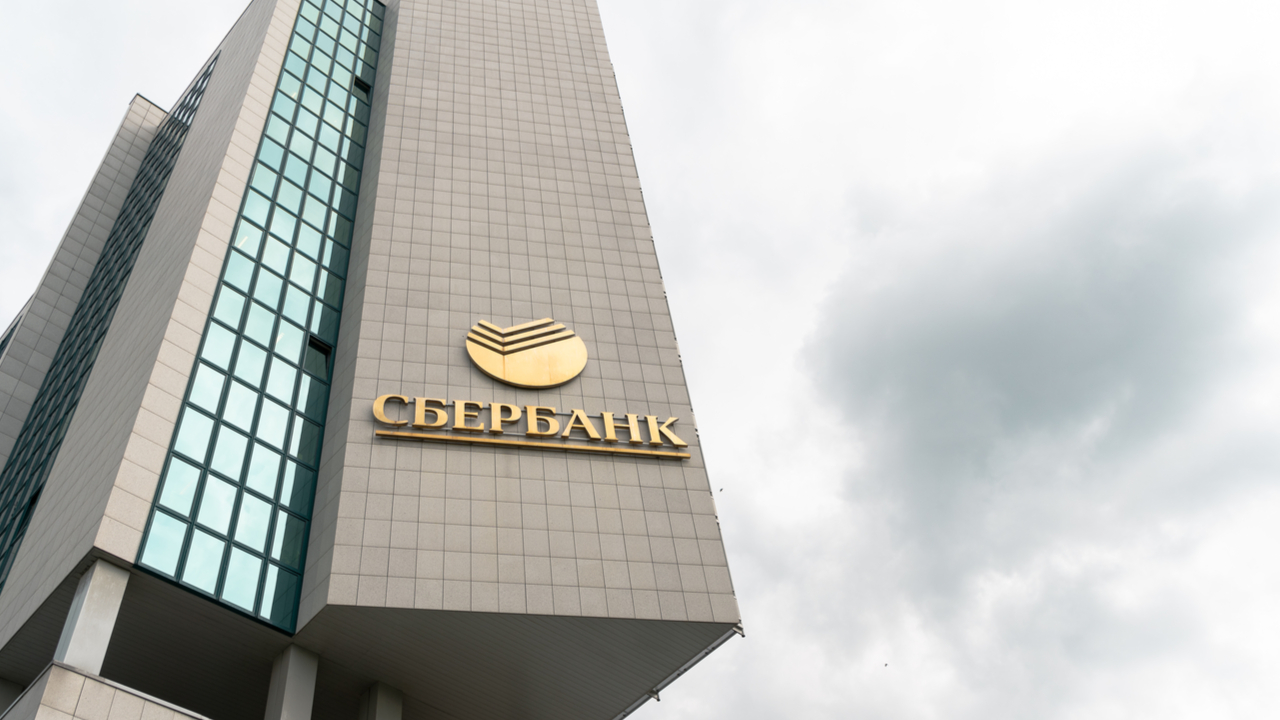 Circle, a cryptocurrency fintech services company, announced it intends to become a full-reserve national commercial bank. This would bring a set of responsibilities and duties to the company equal to those of other mainstream banks: having to report to the Federal Reserve, U.S. Treasury, OCC, and the FDIC. However, it would also put the company […]
Circle, a cryptocurrency fintech services company, announced it intends to become a full-reserve national commercial bank. This would bring a set of responsibilities and duties to the company equal to those of other mainstream banks: having to report to the Federal Reserve, U.S. Treasury, OCC, and the FDIC. However, it would also put the company […] A court has ordered one of Russia’s largest banks to lift restrictions imposed on the accounts of a Russian citizen who was selling digital coins on cryptocurrency exchanges. The state-owned giant Sberbank will now have to unblock its client’s cards and restore his access to its online banking platform. Regional Court in Russia Rules in […]
A court has ordered one of Russia’s largest banks to lift restrictions imposed on the accounts of a Russian citizen who was selling digital coins on cryptocurrency exchanges. The state-owned giant Sberbank will now have to unblock its client’s cards and restore his access to its online banking platform. Regional Court in Russia Rules in […] Gabriel Makhlouf, the governor of the Central Bank of Ireland (CBI), has published a blog post in which he shares his views on the digitalization of finance. While echoing concerns expressed by his counterparts regarding cryptocurrencies, the official has also highlighted some of their positives. Don’t Ignore the Positive Elements of Crypto Technology, Central Bank […]
Gabriel Makhlouf, the governor of the Central Bank of Ireland (CBI), has published a blog post in which he shares his views on the digitalization of finance. While echoing concerns expressed by his counterparts regarding cryptocurrencies, the official has also highlighted some of their positives. Don’t Ignore the Positive Elements of Crypto Technology, Central Bank […] Payments giant Mastercard has announced that its crypto card program is being enhanced for cryptocurrency wallets and exchanges. The company said, “Making the process simpler will allow more banks and crypto partners the opportunity to offer their consumers the choice of paying with cryptocurrency.” Mastercard Making It Simpler to Convert Cryptocurrency to Traditional Fiat Currency […]
Payments giant Mastercard has announced that its crypto card program is being enhanced for cryptocurrency wallets and exchanges. The company said, “Making the process simpler will allow more banks and crypto partners the opportunity to offer their consumers the choice of paying with cryptocurrency.” Mastercard Making It Simpler to Convert Cryptocurrency to Traditional Fiat Currency […]
The UBS chief said the bank continues to urge caution when it comes to crypto exposure for its clients.
Ralph Hamers, CEO of Swiss bank UBS, has said he does not fear missing out on crypto. Speaking to Bloomberg on Tuesday, Hamers said, “Clients are looking at different alternatives, and they hear about crypto, and there is a bit of a fear of missing out as well. They read it in the papers, but they also see the volatility.”
Commenting on the bank’s approach to providing exposure to crypto for its wealth management clients, the UBS CEO stated:
“We don’t offer it actively […] We feel that crypto itself is still an untested asset category.”
Back in May, reports emerged of UBS planning to offer crypto investments to wealthy clients. At the time, the proposed product was limited to a small fraction of the portfolios held by the bank’s wealth management clientele due to the volatility of cryptocurrencies.
However, in June, the bank warned customers to avoid crypto investments, stating that the market will crash under pressure from regulators.
Meanwhile, the Swiss branch of Spanish banking giant BBVA already offers Bitcoin (BTC) trading and custody solutions for clients in the country. Several Swiss banks, such as the 170-year-old Bordier & Cie, also offer crypto trading services.
Related: ‘Investors stay clear’: UBS warns regulators could pop ‘bubble-like crypto markets’
Hamers doubled down on the UBS’ reticence regarding crypto, stating that he does not have FOMO about the bank missing out on a few wealthy clients looking to invest in crypto.
While the UBS CEO appears not to be sold on crypto, banks in the United States are increasingly abandoning their previous anti-cryptocurrency stance and offering digital asset investment products.
As previously reported by Cointelegraph, NYDIG has partnered with a host of internet banking providers to allow several U.S. banks to offer Bitcoin trading to their customers. In July, Bank of America reportedly created a crypto research team, dubbing cryptocurrency “one of the fastest-growing emerging technology ecosystem.”

A working paper released in English by the People's Bank of China cites cryptocurrencies as an important context for the digital yuan's development and reveals that the digital currency will use smart contracts to allow for programmability.
Much attention has been paid to the global, geopolitical implications of China’s rapid and pioneering development of its digital yuan, also provisionally known as e-CNY.
Yet in a new white paper published by the Working Group on E-CNY Research and Development of the People’s Bank of China (PBoC), the institution gave a more domestic-focused and technologically-driven vision of the new currency’s background and key objectives.
Recapping the currency’s research and development timeline, the paper notes that the PBoC first set up a task force to study digital fiat currency back in 2014. By 2016, it had established a Digital Currency Institute, which developed the first-generation prototype for the new currency. With the State Council’s approval, the bank began to collaborate with commercial institutions on further developing and testing the e-CNY at the end of 2017.
Notably, these years coincided with the steep growth of the decentralized cryptocurrency markets and their first major bull run in winter 2017, alongside significant transformations of the domestic and international digital economy transformations.
Big data, cloud computing, artificial intelligence, blockchain and the Internet of Things are the key innovations singled out in the white paper and the bank notes that the Covid-19 pandemic has markedly sped up the digital transformation of Chinese enterprises and payment services.
The PBoC is drawing on many of these developments for the e-CNY, including using smart contracts to allow for programmability, as the new paper reveals for the first time.
Yet while the institution takes a positive view of technological change and far-reaching innovations to retail payment services, its characterization of decentralized cryptocurrencies is scathing:
“Cryptocurrencies such as Bitcoin are claimed to be decentralized and entirely anonymous. However, given their lack of intrinsic value, acute price fluctuations, low trading efficiencies and huge energy consumption, they can hardly serve as currencies used in daily economic activities. In addition, cryptocurrencies are mostly speculative instruments, and therefore pose potential risks to financial security and social stability.”
Moreover, the PBoC notes that concerns about price volatility have spurred some private actors to launch stablecoins, pegged to fiat currencies or other assets. Plans to launch a global stablecoin by commercial institutions, in the PBoC’s view, will “bring risks and challenges to the international monetary system, payment and clearing system, monetary policies, cross-border capital flow management, etc.”
Related: China’s digital yuan deploys at speed, leaving dust in its path
In this context, Beijing’s preference for state-led innovation of retail payment infrastructure and the creation of a centralized, two-tier management model for the e-CNY is to be expected:
“The right to issue e-CNY belongs to the state. The PBOC lies at the center of the e-CNY operational system. It issues e-CNY to authorized operators which are commercial banks, and manages e-CNY through its whole life cycle. Meanwhile, it is the authorized operators and other commercial institutions that exchange and circulate e-CNY to the public.”
In its strictly technical design, the currency integrates both centralized and distributed architectures, however. This has been used to great effect in various trials, implemented in over 1.32 million scenarios to date and with transaction volume totaling 70.75 million at a total value of roughly RMB 34.5 billion ($5.34 billion).
The white paper also considers the intensifying interest by central banks worldwide in the development of central bank digital currencies (CBDCs), noting that the PBoC has been engaged in extensive consultations with international organizations like the BIS, IMF and World Bank. It takes a cautious stance towards the use of e-CNY for cross-order use, stressing “various complicated issues such as monetary sovereignty, foreign exchange policies [...] as well as regulatory and compliance requirements.”
Given that the e-CNY is already technically ready for cross-border use, the PBoC says it will nonetheless actively respond to initiatives from the G20 and other organizations and explore possible pilots for cross-border payments, “preconditioned on mutual respect to monetary sovereignty and compliance.”

A new report released by the triumvirate of global finance argues that central bank digital currencies will benefit worldwide development.
In a joint report, the International Monetary Fund (IMF), the World Bank and the Bank of International Settlements (BIS) have proposed to the G20 that a cross-border network of central bank digital currencies (CBDC), underpinned by efficient technological integration and proactive international cooperation, could be of significant benefit to the world economy.
The report focuses on broadening the horizon beyond central banks’ individual studies of CBDCs for domestic needs, emphasizing that it is crucial to coordinate work at a global scale and to find common ground between various national efforts to reap the full benefits of digital currency.
If tackled astutely, the IMF, the World Bank and the BIS believe that the creation of CBDCs could offer a “clean slate” that would enable the global financial system to significantly enhance the efficiency of cross-border payments.
The report paints a bleak picture of the current system for cross-border payments, which is beset by long transaction delays and high costs due to an excessive number of intermediaries operating across different time zones across the correspondent banking process.
Moreover, cross-border flows are often opaque and difficult to trace, presenting a problem for Anti-Money Laundering (AML) and combating the financing of terrorism (CFT) implementation. Over the past decade, the attenuation of cross-border banking relationships has left some countries struggling to integrate into the global financial system fully.
The report weighs the significant benefits that CBDCs could present for increased efficiency and enhanced economic inclusion against the potential global macro-financial implications and risks involved in the widespread use of CBDCs for cross-border flows.
These challenges include dealing with the sudden capital flow reversals enabled by more frictionless cross-border flows and the potential impact on countries’ ability to manage their exchange rates. If the foreign currency becomes easier to obtain, store and spend, widespread currency substitution could potentially undermine states’ monetary policy independence and pose risks to both issuing and receiving countries.
A worldwide push for CBDC issuance, the report notes, would therefore require tight integration of multiple CBDCs and uniformity of design choices, alongside specific measures designed to mitigate these macro risks.
The groundwork would not only be conceptual and design-focused but would imply coordinated strategies, standardized practices and a degree of structural integration, ranging from the creation of new international payment infrastructures to targeted policies. The latter, for example, could include introducing limits on foreign CBDC holdings or transfers.
Related: UK chancellor names CBDC on list of financial reforms for Treasury
In addition to extensive infrastructural cooperation on technological interoperability and payment system access, there would need to be a similar level of regulatory coordination, implying the alignment of supervisory and oversight frameworks for cross-border flows and the coordination of AML and CFT measures.
While most countries are studying or developing pilots for CBDCs, central banks have taken a wide variety of distinct approaches to CBDC design and have paced their research and development efforts differently. China’s digital yuan is well ahead of the international game, and multiple countries have piloted CBDCs for cross-border use, including France, Switzerland, Singapore and Bahrain, to name just a few.
 Monobank, a mobile bank operating in Ukraine, has announced new products and services that will allow users to trade cryptocurrencies and stocks. One of the offerings includes a bitcoin card which the online banking platform is going to launch as early as this month. Monobank to Offer Users Bitcoin Card and Crypto Exchange By the […]
Monobank, a mobile bank operating in Ukraine, has announced new products and services that will allow users to trade cryptocurrencies and stocks. One of the offerings includes a bitcoin card which the online banking platform is going to launch as early as this month. Monobank to Offer Users Bitcoin Card and Crypto Exchange By the […]
Bank TSB is set to become the latest financial institution in the United Kingdom to prevent customers from investing in crypto.
United Kingdom-based financial institution TSB Banking Group Plc. will soon ban its over 5.4 million customers from buying Bitcoin (BTC) and cryptocurrencies.
According to a report by The Telegraph on Saturday, the bank’s imminent crypto ban is due to alleged cases of fraud associated with cryptocurrency transactions.
Bank TSB has reportedly received a plethora of complaints from customers about crypto-related fraud cases. Indeed, the U.K. bank says about 12.5% of payments to crypto exchange platforms involve transactions as against one in 5,500 for non-virtual currency-related transfers.
Crypto exchange giant Binance has reportedly been linked to the rising number of crypto fraud complaints lodged by the bank’s customers with two-thirds of suspected cases were linked to Binance with 849 instances occurring between mid-March and mid-April.
As previously reported by Cointelegraph, U.K. bank NatWest issued a crypto scam alert back in May after reportedly receiving a record number of complaints in Q1. Earlier in April, the bank had served an anti-crypto notice to clients and customers to stay away from cryptocurrencies.
Apart from Binance, TSB Bank identified U.S. exchange service Kraken as another platform linked to a significant number of suspected fraud cases. The U.K. bank also criticized crypto exchanges for not responding to fraud-related customer complaints.
Commenting on plans to introduce a crypto ban, a spokesperson for TSB Bank remarked that it was the bank’s obligation to protect customers from platforms with “excessively high fraud rates.”
TSB Bank joins a growing list of U.K. financial institutions that have barred customers from crypto. Apart from NatWest, other British banks like Barclays and Starling have moved to ban customers from depositing cash in cryptocurrency trading platforms.
Related: UK Starling bank to resume crypto exchange deposits in late June
Earlier in June, Starling announced that it would resume allowing customers to deposit cash in crypto exchanges from June 23.
At the start of the year, HSBC began preventing customers from withdrawing profits from crypto exchanges to their bank accounts.
While there is no crypto ban in the U.K., regulators remain critical of cryptocurrencies. In May, Bank of England governor Andrew Bailey warned that crypto investors ran the risk of losing all their money.
Bailey’s comments echoed a similar warning issued by the U.K. Financial Conduct Authority back in January.